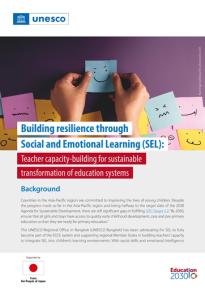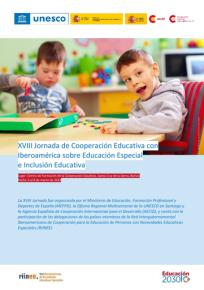Publication
Addressing learning needs in the Asia-Pacific region: teachers’ guide on diagnostic assessment


A ‘one size fits all’ approach will not help solve the learning crisis in the Asia-Pacific region.
In half of Asia-Pacific countries, less than fifty per cent of student populations in primary and lower secondary achieve minimum learning competencies in reading and mathematics.
It is only by addressing each and every student’s learning needs that educators and education systems will be able to improve the quality of learning.
UNESCO has developed this practical guide to help teachers, school principals and policymakers understand how to identify the learning needs and learning gaps of each and every student in order to take appropriate action in the classroom.
To do so, this guide aims to equip teachers and educators in formal education in the Asia-Pacific region with the tools and know-how to design and implement a diagnostic assessment as part of their teaching practices.
This means that teachers should be able to PLAN a diagnostic assessment when needed to understand whether their students have the necessary foundations to embark on new learning; to COLLECT relevant learning information through a variety of learning techniques; to INTERPRET the learning information and make sense of students’ needs; to COMMUNICATE the findings to students to help them improve; and to MAKE DECISIONS on how to adapt teaching and learning accordingly.
Teachers, school principals and education policymakers are invited to use this guide to develop national capacity for identifying learning needs and give every student the opportunity to learn and succeed.
#QualityOfEducation #NEQMAP #TeacherDevelopment #AddressLearningGap









